Anti-inflammatory Properties Of Turmeric
Turmeric is a spice that has been used for centuries in Indian and Southeast Asian cuisine. In recent years, it has gained popularity for its potential health benefits. One of the most significant benefits of turmeric is its anti-inflammatory properties.
Inflammation is a natural response of the body’s immune system to injury or infection. However, chronic inflammation can lead to various diseases, such as arthritis, heart disease, and even cancer. Turmeric contains a compound called curcumin, which has been shown to have powerful anti-inflammatory effects, similar to some pharmaceutical drugs.
Turmeric can help reduce inflammation in various parts of the body, such as the joints, gut, and skin. It has been found to be useful in managing arthritis symptoms by reducing inflammation and pain. It may also aid in improving digestive health by reducing gut inflammation and enhancing the gut’s protective lining.
- Curcumin, found in turmeric, has powerful anti-inflammatory properties.
- Chronic inflammation can lead to several diseases, such as arthritis, heart disease, and cancer.
- Turmeric can help manage arthritis pain and improve digestive health by reducing inflammation.
| Health Benefit of Turmeric | How It Works |
|---|---|
| Reduces inflammation | Its compound curcumin has anti-inflammatory properties. |
| Aids in managing arthritis | Reduces inflammation and pain in the joints. |
| Improves digestive health | Reduces gut inflammation and enhances the gut’s protective lining. |
Consuming turmeric regularly as a spice in your daily cooking can help reduce inflammation and lower the risk of chronic diseases. Turmeric supplements are also available in pill or capsule form but consult with your healthcare provider before taking any supplements.
In conclusion, turmeric has potent anti-inflammatory properties that can help manage various conditions caused by inflammation. Adding turmeric to your diet regularly can be a natural and effective way to improve your overall health.
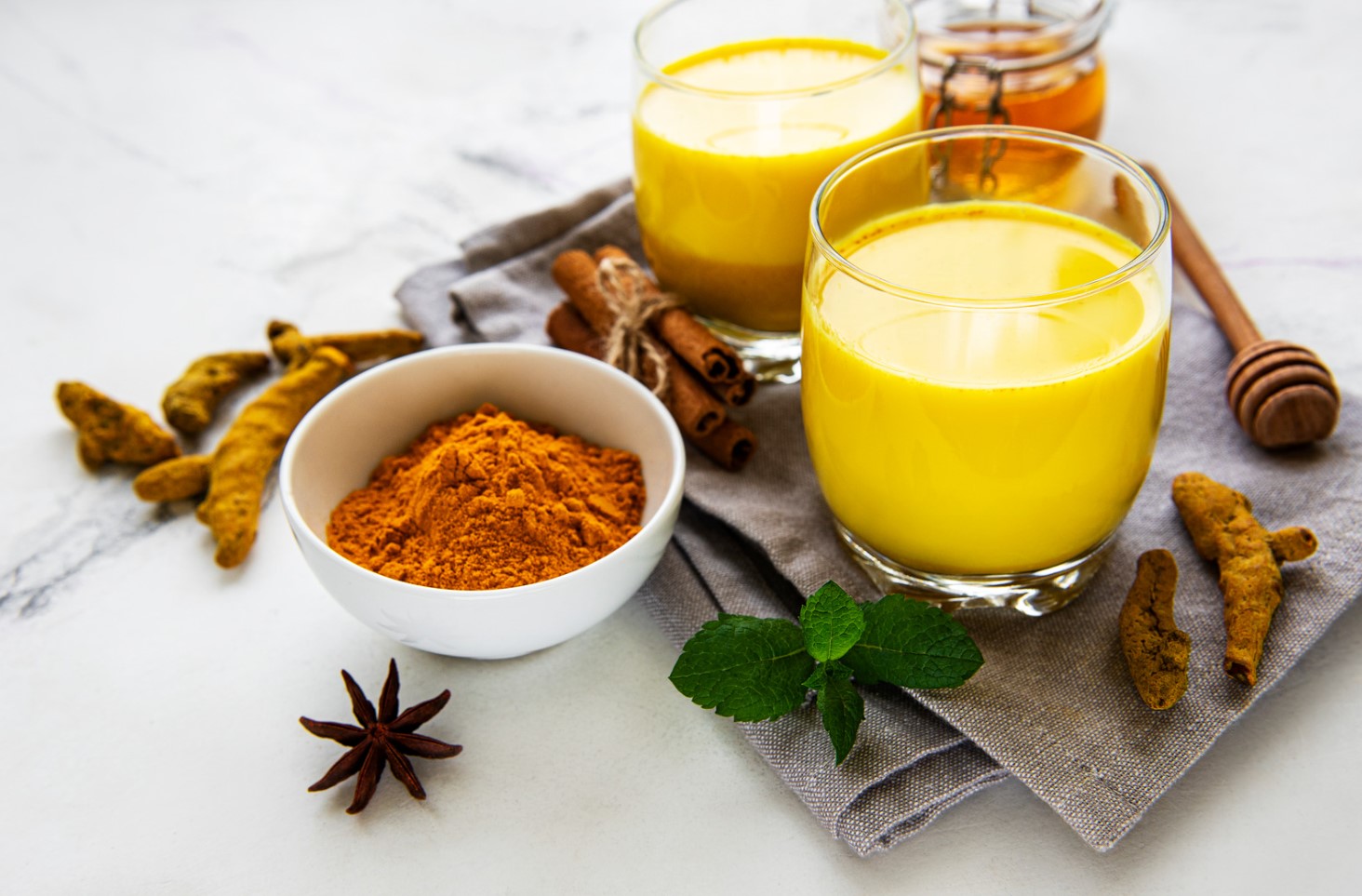
Turmeric Can İmprove Brain Function
Turmeric is a spice that has been widely used in traditional medicine for ages. Its benefits have been well-documented and continue to be studied by modern researchers. In recent years, turmeric has been found to have a positive effect on brain function.
Studies have shown that turmeric can improve memory and cognitive function. Curcumin, the active ingredient in turmeric, has been found to increase levels of brain-derived neurotrophic factor (BDNF). BDNF is a type of protein that is important for the growth and survival of brain cells. By increasing levels of BDNF, turmeric may be able to enhance brain function and promote neuroplasticity, which is the brain’s ability to change and adapt over time.
- One study found that taking just one gram of turmeric daily for 18 months led to significant improvements in memory and attention span in older adults.
- Another study found that curcumin supplements improved the memory and mood of people with mild, age-related memory loss.
In addition to improving memory and cognitive function, turmeric may also have a protective effect on the brain. Studies have shown that curcumin may help to prevent and treat conditions like Alzheimer’s disease and Parkinson’s disease, which are characterized by the death of brain cells.
| Benefits of Turmeric for Brain Function |
|---|
| Increases levels of BDNF |
| Promotes neuroplasticity |
| Improves memory and cognitive function |
| May help prevent and treat Alzheimer’s and Parkinson’s disease |
In conclusion, turmeric is a versatile and natural spice that has been found to improve brain function. Its benefits are supported by numerous studies, and it has been used for centuries in traditional medicine. Whether you’re looking to improve your memory, cognitive function, or protect your brain from disease, turmeric is an excellent addition to your diet.
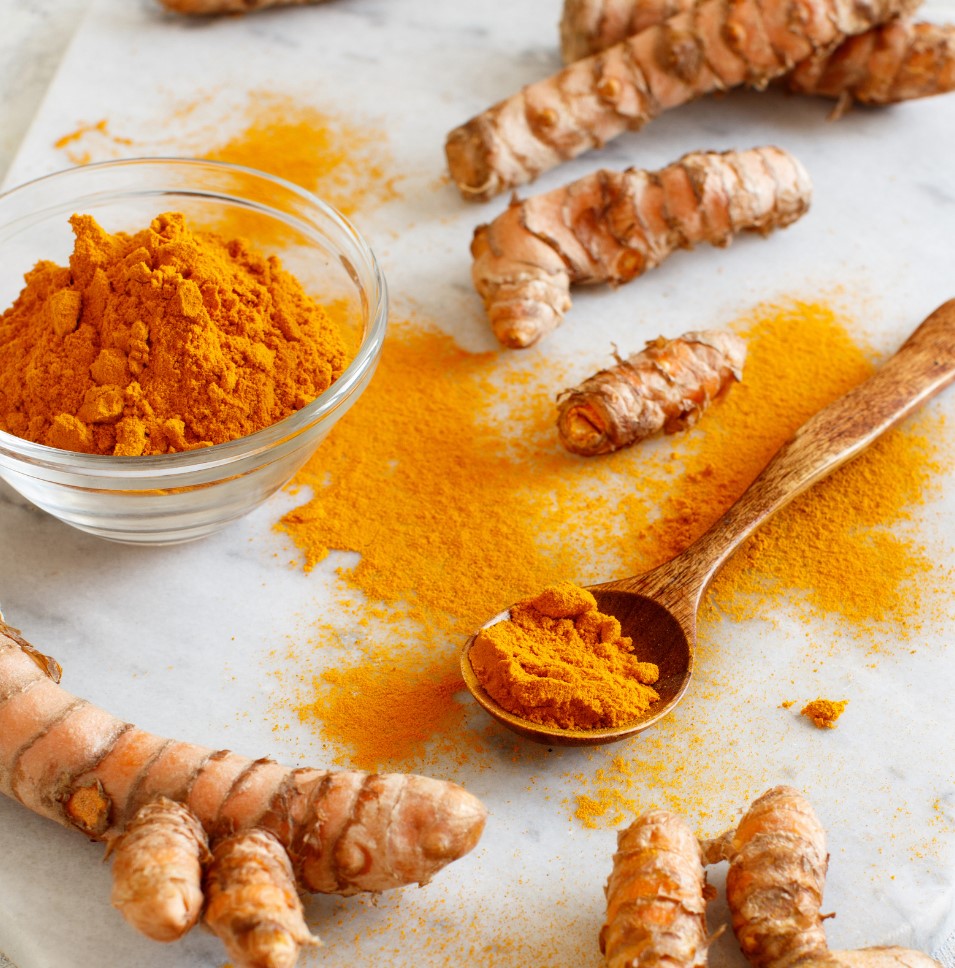
Turmeric May Reduce Risk Of Heart Disease
Turmeric is an ancient spice that has been used for medicinal purposes for centuries. It’s a popular ingredient in many cuisines around the world and is renowned for its vibrant yellow color and pungent flavor. One of the top benefits of turmeric is its ability to reduce the risk of heart disease.
Studies have shown that turmeric contains compounds that have powerful anti-inflammatory properties. These compounds can help reduce inflammation in the body, which is a major contributor to heart disease. Inflammation leads to the accumulation of plaque in the arteries, which can cause blockages and increase the risk of heart attack and stroke.
Curcumin, which is the main active ingredient in turmeric, has also been shown to improve the lining of blood vessels, reduce cholesterol levels, and prevent the formation of blood clots. All of these factors contribute to a healthy heart and can significantly reduce the risk of heart disease.
- Reduce inflammation in the body.
- Improve the lining of blood vessels.
- Reduce cholesterol levels, and prevent the formation of blood clots.
It’s important to note that while turmeric has many health benefits, it should not be used as a substitute for prescribed medications or a healthy lifestyle. Incorporating turmeric into your diet can be a simple and effective way to improve heart health, but it’s important to consult with a healthcare professional if you have any concerns about your heart health or treatment plan.
In conclusion, turmeric is a natural and versatile ingredient with many health benefits, including its ability to reduce the risk of heart disease. By incorporating turmeric into your diet, you can support heart health and overall wellness. However, it’s important to work with a healthcare professional to create a personalized plan that meets your individual needs and goals.
Curcumin İn Turmeric Fights Against Cancer
The use of turmeric as a spice and medicinal herb has been in existence for centuries. The active ingredient in turmeric, curcumin, is currently under investigation as a possible tool in the battle against cancer, the world’s leading cause of death. Curcumin is a powerful antioxidant and anti-inflammatory agent, meaning it can target and destroy cancer cells without harming healthy cells in the body. Here, we will discuss further the effectiveness of curcumin in fighting against cancer.
Curcumin has been found to target cancer cells and reduce their growth in multiple ways. Firstly, it can block the formation of new blood vessels in tumors, preventing their further growth and spread. Secondly, curcumin has been shown to enhance the effects of chemotherapy drugs, making them more effective at killing cancer cells. Thirdly, curcumin can directly induce cancer cell death by promoting the activation of a protein called p53, which is a crucial regulator of genes involved in the cell cycle and tumor growth.
- Studies have shown that curcumin can target
- Multiple mechanisms to fight against cancer
- Curcumin can block new blood vessels in tumors
- It also enhances the effects of chemotherapy drugs
- Directly induce cancer cell death by promoting p53 activation
Furthermore, curcumin possesses powerful antioxidant properties that protect the body from the harmful effects of free radicals. Free radicals are unstable molecules that can damage DNA and cause cell mutations, leading to cancer development. Curcumin’s antioxidant properties may prevent this damage from occurring, reducing the risk of cancer formation.
| Curcumin in Turmeric Fights Against Cancer |
|---|
| Curcumin targets cancer cells and blocks their further growth by preventing new blood vessel formation. |
| It enhances the effectiveness of chemotherapy drugs, killing cancer cells more efficiently. |
| Curcumin promotes the activation of p53, which induces cancer cell death. |
| Curcumin’s antioxidant properties may protect against DNA damage from free radicals, reducing the risk of cancer development. |
In conclusion, curcumin in turmeric has been found to be a promising tool in the fight against cancer. It can target cancer cells in multiple ways, prevent their growth, and boost the effectiveness of chemotherapy drugs. Furthermore, its antioxidant properties can protect the body from DNA damage, reducing the risk of cancer formation. Although more research is needed, curcumin shows great potential as a natural and effective cancer-fighting agent.

Turmeric Can Alleviate Depression Symptoms
Depression is a mental health problem that affects millions of people worldwide. It can leave a person feeling hopeless, sad, and uninterested in life. While there are several treatments available for depression, many people are turning to natural remedies to help alleviate their symptoms. One such remedy is turmeric, a spice that has been used for centuries in traditional medicine.
Turmeric contains a compound called curcumin, which has been found to have anti-inflammatory and antioxidant properties. These properties are believed to help alleviate symptoms of depression by reducing inflammation in the brain and protecting the brain from damage caused by oxidative stress.
- Studies have shown that curcumin can increase the levels of neurotransmitters such as serotonin and dopamine in the brain. These neurotransmitters are often depleted in people with depression, leading to feelings of sadness and hopelessness.
- In one study, participants who took curcumin supplements for six weeks showed significant improvements in their symptoms of depression compared to those who took a placebo.
- Other studies have shown that curcumin can enhance the effects of antidepressant medication, making it a useful adjunct therapy for people with depression.
While more research is needed, turmeric and its active ingredient curcumin show promise as a natural remedy for depression. However, it’s always important to talk to a healthcare professional before starting any new treatment, especially if you are currently taking medication for depression.
Turmeric Can Help Manage Arthritis Pain
Arthritis is a painful condition characterized by joint inflammation. It affects millions of people worldwide, and there are different types of arthritis. The most common types are osteoarthritis, rheumatoid arthritis, and psoriatic arthritis. While there’s no known cure for arthritis, there are ways to manage its symptoms, and turmeric has been shown to be one of them.
Turmeric is a spice that’s been used for centuries in Ayurvedic and Chinese medicine. Curcumin, the main active compound in turmeric, has anti-inflammatory properties that can help reduce joint inflammation and pain. A study published in the Journal of Medicinal Food found that curcumin was more effective than a placebo at reducing joint pain and swelling in patients with osteoarthritis of the knee.
- Curcumin can be found in turmeric supplements, but it’s important to choose a high-quality supplement that contains enough curcumin to be effective.
- Turmeric can also be consumed as a spice in food. Add it to curries, soups, smoothies, or sprinkle it on roasted vegetables.
- Some studies have also shown that combining turmeric with black pepper can increase its absorption and effectiveness.
It’s important to note that turmeric is not a substitute for conventional medical treatment, and it’s always best to consult with a healthcare professional before starting any new supplements or treatments. Turmeric can help manage arthritis pain, but it’s important to combine its use with other healthy habits such as regular exercise, stress management, and a healthy diet. All of these factors can help improve overall joint health and reduce the risk of arthritis-related complications.
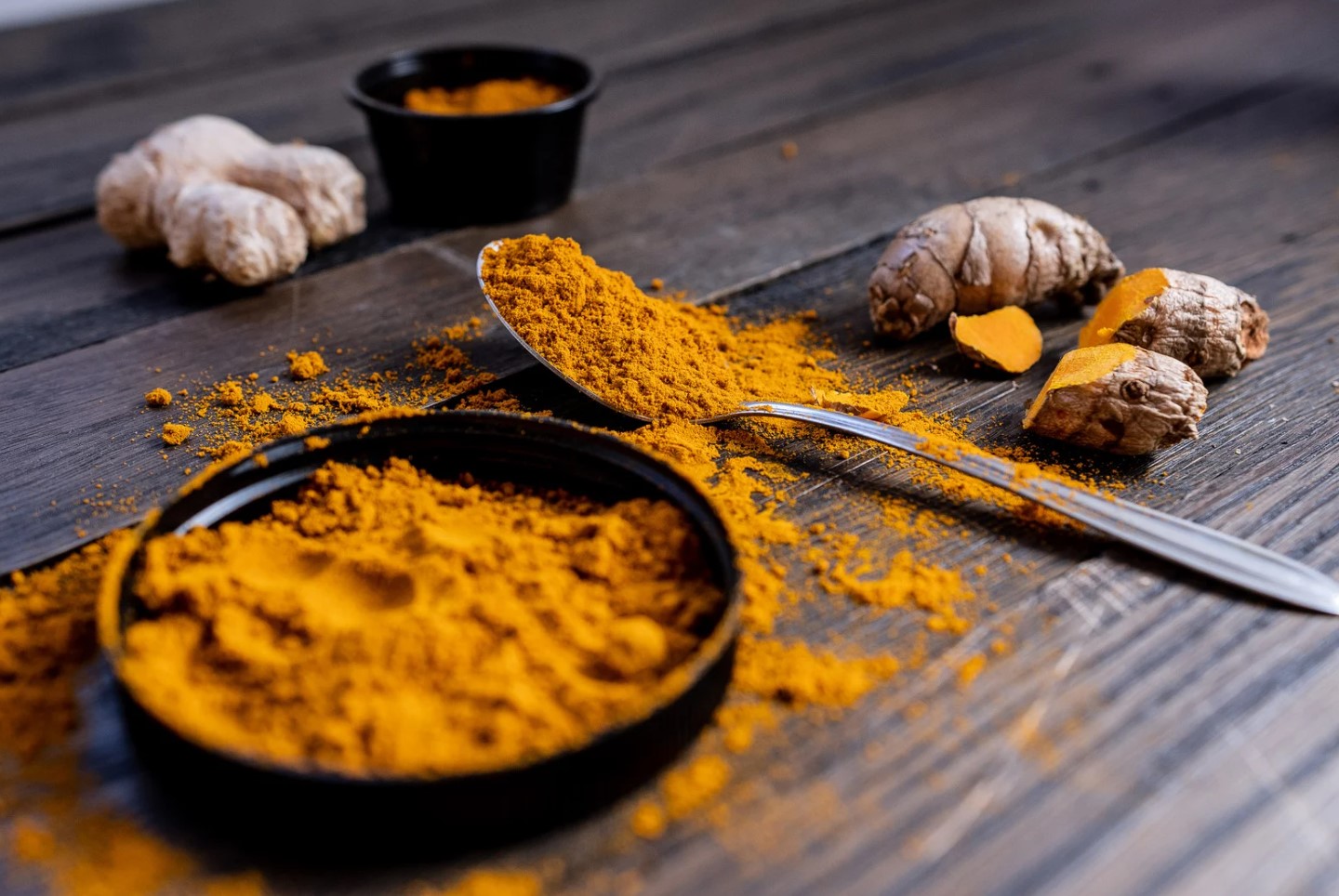
Turmeric İs Effective İn Treating Skin Problems
Turmeric has been used for its medicinal properties for centuries in India and other parts of Asia. Besides being a popular spice and colorant in cooking, turmeric has also been used to treat a variety of skin problems. The active ingredient curcumin found in turmeric has anti-inflammatory and antioxidant effects, which makes it an effective treatment for skin disorders.
Firstly, turmeric is known to help fight acne. Acne is a common skin problem caused by inflammation in the skin. Curcumin found in turmeric has both antibacterial and anti-inflammatory properties, which can help reduce acne breakouts. Applying a paste made with turmeric and water, or mixing turmeric with honey or yogurt and leaving it on the skin for 10-15 minutes, can help reduce the appearance of acne and prevent further breakouts.
- Secondly, turmeric can help reduce the appearance of scars and hyperpigmentation. Curcumin has been found to inhibit the production of melanin, which is responsible for skin pigmentation. This makes turmeric an effective treatment for dark spots, blemishes, and other skin discolorations. Creating a paste out of turmeric and lemon juice or apple cider vinegar can help lighten the skin and reduce the appearance of scars and hyperpigmentation.
- Thirdly, turmeric can help soothe skin irritations and inflammation. The anti-inflammatory effects of curcumin can help calm and heal skin conditions like eczema, psoriasis, and dermatitis. Applying a turmeric paste or mixture to the affected areas can help reduce itching, redness, and swelling.
| The Benefits of Turmeric for Skin |
|---|
| Reduces acne breakouts |
| Lightens skin and reduces the appearance of scars and hyperpigmentation |
| Soothes skin irritations and inflammation |
In conclusion, turmeric has a range of benefits for the skin. From reducing acne breakouts to soothing skin irritations and inflammation, turmeric can be an effective natural remedy for a variety of skin problems. However, it is important to note that turmeric can stain the skin and clothing, so it is important to use it sparingly and with caution. When using turmeric for skin treatment, it is recommended to do a patch test on a small area of skin to ensure there is no adverse reaction. With the right use, turmeric can be an effective and versatile spice for skin health.
Turmeric Can İmprove Digestive Health
Turmeric has been used for centuries not only for its flavor and color but also for its medicinal properties. One of the many benefits of turmeric is its ability to improve digestive health.
The active component in turmeric, called curcumin, has anti-inflammatory properties that can reduce inflammation in the gut and improve digestion. Inflammation in the gut can cause various digestive issues, such as bloating, gas, and constipation. Studies have found that curcumin can help alleviate these symptoms and promote better digestion.
- Curcumin can increase bile production, which aids in fat digestion.
- Curcumin can stimulate the production of digestive enzymes.
- Curcumin can reduce inflammation in the gut
Moreover, turmeric has been found to be effective in the treatment of inflammatory bowel disease. A study published in the journal Clinical Gastroenterology and Hepatology found that turmeric helped reduce symptoms of ulcerative colitis, an inflammatory bowel disease characterized by abdominal pain, diarrhea, and rectal bleeding.
| Benefits of Turmeric for Digestive Health |
|---|
| Improves digestion |
| Reduces inflammation in the gut |
| Aids in fat digestion |
| Stimulates the production of digestive enzymes |
| Effective in the treatment of ulcerative colitis |
To incorporate turmeric into your diet, you can add it to your meals, such as curries, roasted vegetables, or smoothies. You can also take turmeric supplements, which are available in the form of capsules or powders.
In conclusion, turmeric can be beneficial for digestive health due to its anti-inflammatory and digestive properties. If you suffer from digestive issues, incorporating turmeric into your diet may help alleviate your symptoms and promote better digestion.
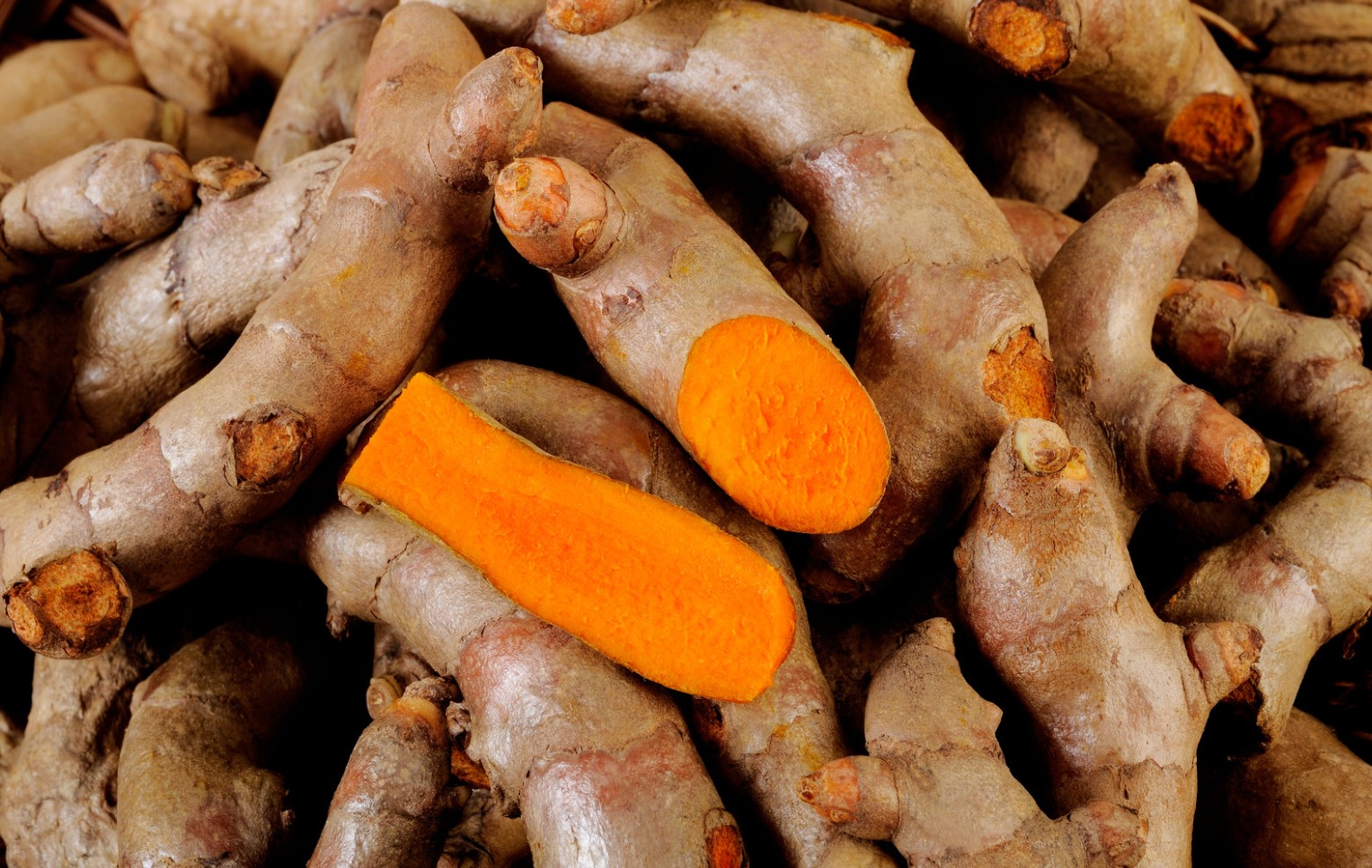
Turmeric Can Lower Blood Sugar Levels
Turmeric is a spice that has been used for centuries in traditional medicine for its various health benefits. The active ingredient in turmeric, curcumin, has been studied extensively for its anti-inflammatory and antioxidant properties. While traditionally used to treat various ailments, recent research shows that turmeric can also help in managing blood sugar levels.
Studies conducted on animals show that curcumin can reduce blood sugar levels by increasing the secretion of insulin from the pancreas. It also helps in improving insulin sensitivity, which means it helps the body to use insulin more efficiently. Additionally, curcumin has also been found to reduce inflammation, which is a common factor in the development of diabetes.
- Curcumin can help in managing blood sugar levels in individuals with Type 2 diabetes by increasing insulin secretion and improving insulin sensitivity.
- Curcumin can help in those with prediabetes by reducing inflammation that can lead to diabetes development.
While the research is limited on the effects of turmeric on blood sugar in humans, it has been found to have a positive effect in some studies. One study showed that taking curcumin supplements for nine months improved beta-cell function, which produces and releases insulin, in people with prediabetes. Another study found that taking curcumin supplements for three months improved blood sugar control in people with Type 2 diabetes.
| Benefits of Turmeric in lowering blood sugar levels |
|---|
| Increases insulin secretion from the pancreas |
| Improves insulin sensitivity |
| Reduces inflammation, a common factor in diabetes development |
| Improves beta-cell function in those with prediabetes |
| Improves blood sugar control in those with Type 2 diabetes |
Despite the positive effects of turmeric in lowering blood sugar levels, it should not be considered as a substitute for medication for those with diabetes. However, incorporating turmeric into your diet can have additional health benefits such as reducing inflammation, improving brain function, and aiding in digestion.
Overall, turmeric has promising potential in managing blood sugar levels in those with diabetes and prediabetes due to its anti-inflammatory and insulin-sensitizing properties. Its incorporation into the diet can be achieved through the use of turmeric in cooking, or through supplements.
Turmeric Can Act As A Natural Painkiller
Turmeric is a spice that has been used for centuries in Indian and Chinese medicine. It is known for its anti-inflammatory and antioxidant properties which make it a powerful natural remedy. However, did you know that turmeric can also function as a natural painkiller? That’s right! This versatile spice can alleviate different types of pain without any side effects.
The active ingredient in turmeric is curcumin which has been found to have analgesic effects. Curcumin blocks the production of certain enzymes that cause inflammation and pain in the body. This makes it effective in reducing pain caused by conditions such as arthritis, muscle soreness, and headaches.
- Arthritis: Arthritis is a condition that causes inflammation and pain in the joints. Studies have shown that taking turmeric supplements can help reduce joint pain and inflammation and improve mobility in people with arthritis.
- Muscle soreness: Exercise-induced muscle soreness is a common problem among athletes and fitness enthusiasts. Turmeric can help reduce muscle damage and inflammation caused by exercise, thus reducing soreness and improving recovery.
- Headaches: Headaches can be caused by different factors such as stress, dehydration, lack of sleep, and inflammation. Turmeric can help reduce inflammation and pain in the head, providing relief from headaches.
Unlike conventional painkillers such as aspirin or ibuprofen, turmeric does not cause any adverse side effects such as stomach ulcers, liver damage, or bleeding. Turmeric is a natural and safe alternative to painkillers, especially for people who cannot tolerate the side effects of conventional medications.
| Pain type | Turmeric dose | Duration |
|---|---|---|
| Arthritis pain | 500-2000 mg/day | 8-12 weeks |
| Muscle soreness | 400-600 mg/day | 4-5 days |
| Headaches | 1000 mg/day | 3-4 weeks |
In conclusion, turmeric is a natural painkiller that can alleviate different types of pain without any side effects. Whether you have arthritis, muscle soreness, or headaches, turmeric can provide relief and improve your quality of life. However, it is important to consult your doctor before taking turmeric supplements, especially if you are already taking medications or have any underlying medical conditions.
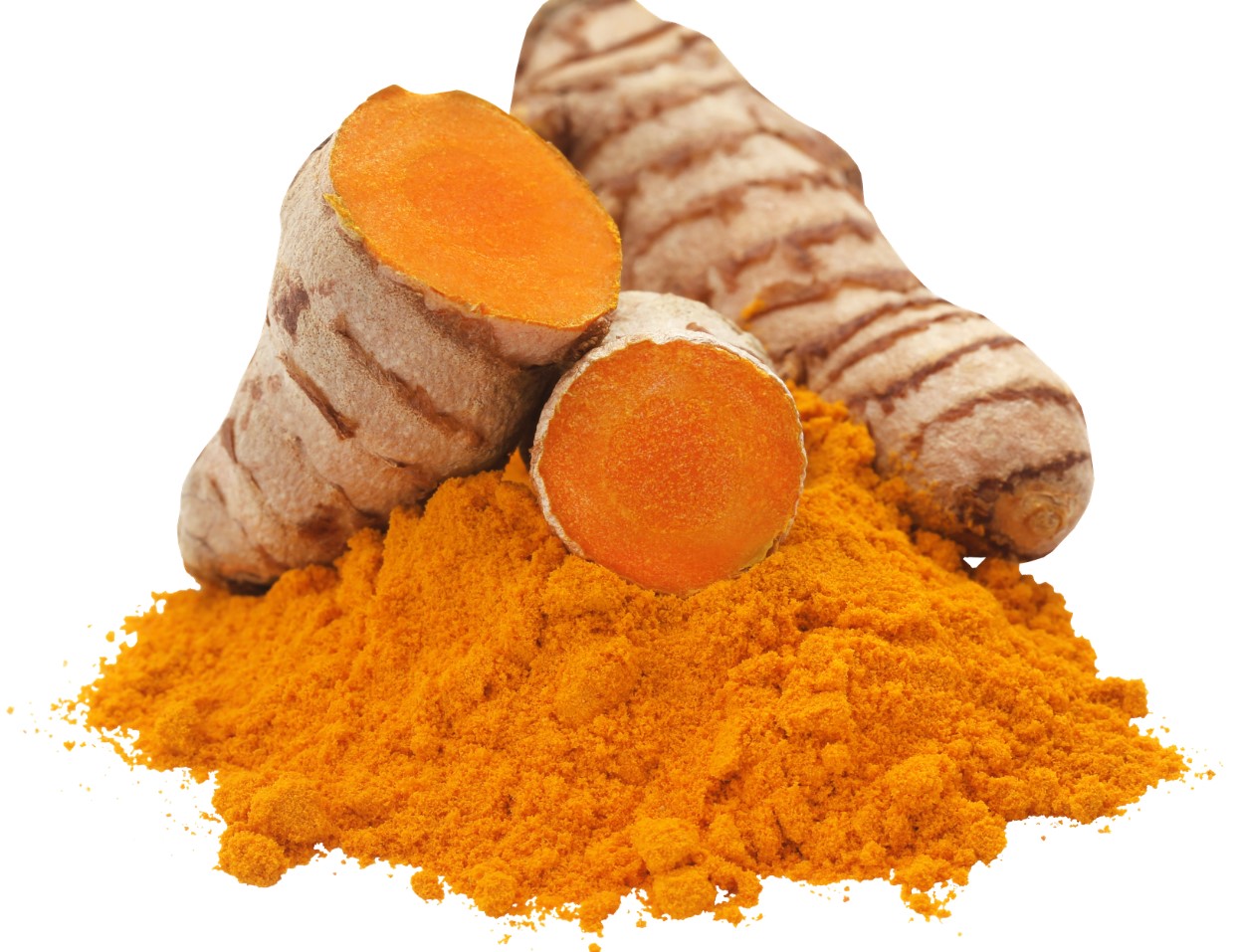
Turmeric Can Boost İmmunity
Turmeric, also known as Curcuma longa, is a spice widely used in Asian cuisine. It has a bright yellow color and a pungent taste. Turmeric has been used for centuries in traditional medicine because of its many health benefits. One of the primary benefits of turmeric is that it can boost the immune system.
- Curcumin is the active ingredient in turmeric that provides it with its many health benefits. It has been shown to have anti-inflammatory, antioxidant, and anti-tumor properties. These properties can help strengthen the immune system and reduce the risk of infections.
- Turmeric can increase the production of white blood cells, which are responsible for fighting off infections and diseases in the body. This boost in white blood cells is vital for preventing illnesses such as the common cold or flu.
- Many studies have shown that turmeric can help reduce inflammation in the body. Inflammation is a natural response of the immune system to combat infections and injuries. However, chronic inflammation can negatively impact the immune system, leading to a weakened immune response. Turmeric’s anti-inflammatory properties can help reduce this negative impact and boost overall immunity.
Incorporating turmeric into your diet is easy. It can be added to your favorite meals, such as soups, stews, curries, and more. Another popular way to consume turmeric is through turmeric milk or golden milk. This is a mixture of turmeric and milk that has been used in Indian Ayurvedic medicine for centuries to boost immunity and improve overall health.
In conclusion, turmeric can boost the immune system in many ways. Curcumin, its active ingredient, has anti-inflammatory and anti-tumor properties, which can help increase the production of white blood cells and reduce the negative impact of chronic inflammation on the immune system. So, incorporating turmeric into your daily diet can be an easy way to boost immunity and improve overall health.
Turmeric Can Aid İn Weight Loss Efforts
Turmeric is a spice that is well-known for its numerous health benefits. It has been used in traditional medicine for centuries to treat a variety of conditions. Recently, research has shown that turmeric can aid in weight loss efforts.
The active ingredient in turmeric, called curcumin, has been found to have anti-inflammatory properties that can help promote weight loss. Inflammation is often the root cause of obesity, and curcumin can help reduce inflammation throughout the body. This can lead to a decrease in body fat and an improvement in overall health.
- Curcumin helps to boost metabolism and increase fat burning
- Turmeric can help to suppress appetite and reduce cravings
- It can also improve digestion and aid in the absorption of nutrients
These properties make turmeric an excellent addition to any weight loss plan. It can be used in cooking or taken as a supplement. However, it is important to note that turmeric should not be used as a substitute for a healthy diet and exercise. It should instead be used as a tool to aid in weight loss efforts.
| Ways to Incorporate Turmeric into Your Diet | Benefits |
|---|---|
| Golden milk | Increase metabolism and improve digestion |
| Turmeric tea | Reduce inflammation and suppress appetite |
| Turmeric chicken or fish | Boost metabolism and reduce cravings |
In conclusion, turmeric can aid in weight loss efforts by promoting fat burning, suppressing appetite, and improving digestion. Incorporating turmeric into your diet can be a simple and effective way to achieve your weight loss goals. However, it is important to remember that turmeric should be used as a supplement to a healthy lifestyle, not a substitute for it.
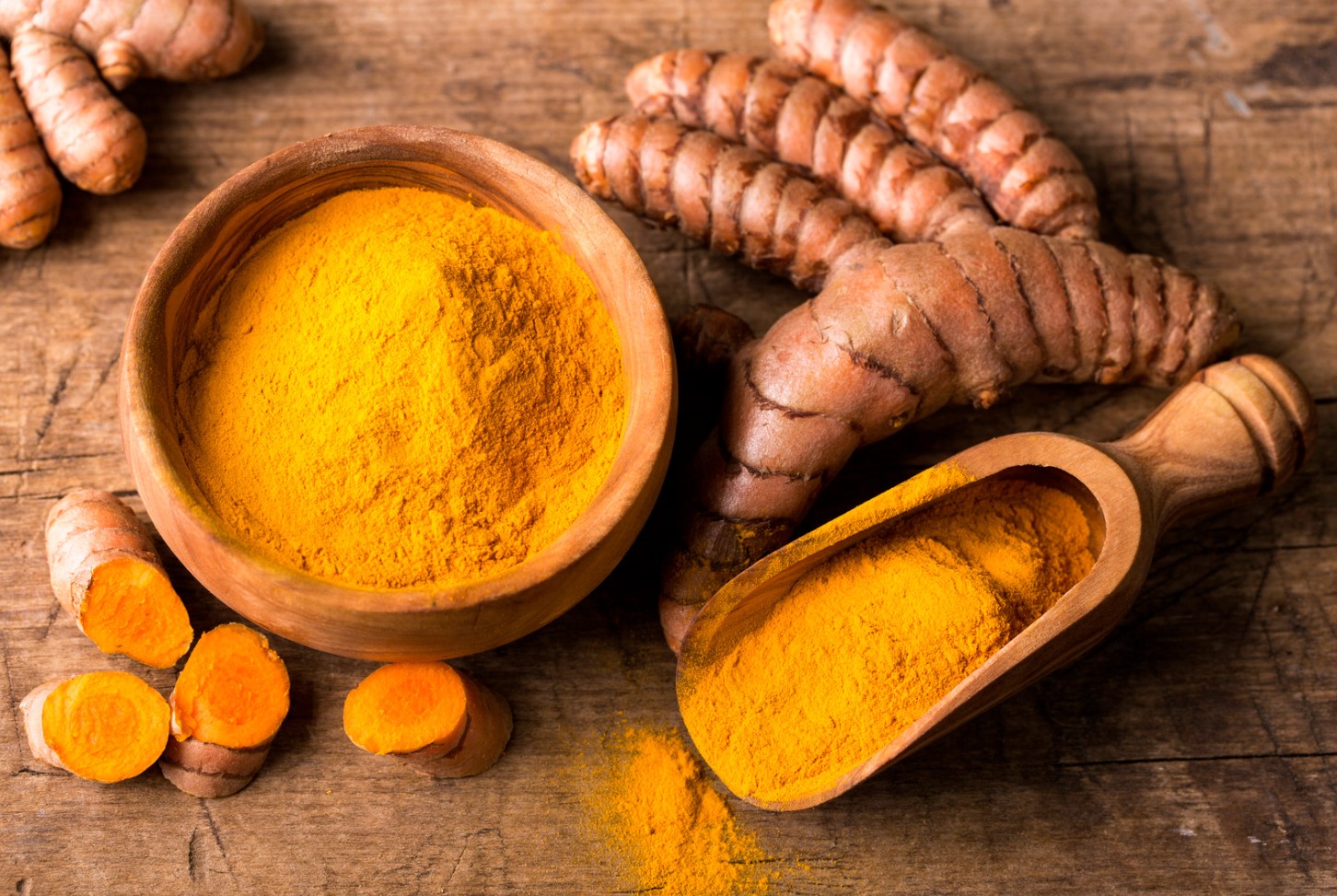
Turmeric Can İmprove Liver Function
Turmeric has been recognized as a powerful spice that offers a range of health benefits for the human body. One of the most significant benefits of turmeric is its ability to improve liver function. The liver is an essential organ that helps in removing toxins from the body and aids in digestion. When the liver is not functioning correctly, it can lead to severe health problems in the body.
Studies have shown that turmeric can have a positive effect on liver health. The curcumin present in turmeric helps in reducing the oxidative stress that occurs in the liver as a result of certain medications, alcohol consumption, or liver diseases. This, in turn, reduces the risk of liver damage and promotes overall liver health.
- One of the most significant benefits of turmeric is its ability to improve liver function
- The curcumin present in turmeric helps in reducing the oxidative stress that occurs in the liver as a result of certain medications, alcohol consumption, or liver diseases
- This, in turn, reduces the risk of liver damage and promotes overall liver health
Turmeric can also help in preventing and treating liver fibrosis, a condition where the liver tissues are replaced with hard fibrous tissue, leading to liver failure. The anti-inflammatory and antioxidant properties of turmeric can help in reducing inflammation and oxidative stress in the liver, leading to improved liver function.
| Benefits of Turmeric for Liver Function |
|---|
| Reduces oxidative stress in the liver |
| Protects against liver damage caused by toxins or alcohol consumption |
| Reduces inflammation in the liver |
| Improves liver function |
It is important to note that while turmeric can have a positive impact on liver function, it should not be used as a replacement for medical treatment. If you have any liver-related health concerns, it is essential to consult your doctor before incorporating turmeric into your diet.
In conclusion, turmeric has been found to be effective in improving liver function, reducing the risk of liver damage, and promoting overall liver health. Incorporating turmeric into your diet can be an easy and natural way to improve liver function and maintain a healthy liver.
Turmeric Can Promote Healthy Aging
Turmeric is not just any other spice as studies have shown that it has numerous health benefits. One of the benefits of turmeric is that it can promote healthy aging. Healthy aging is crucial in ensuring that we have a long and productive life. Aging comes with its challenges, but some of these challenges can be mitigated by the regular consumption of turmeric.
Turmeric has anti-inflammatory properties that can help reduce inflammation caused by aging. Inflammation is a major contributing factor to many chronic diseases such as heart disease, diabetes, and Alzheimer’s disease. Turmeric’s anti-inflammatory properties can help reduce the risk of developing some of these chronic diseases.
Turmeric has powerful antioxidants that help eliminate free radicals from the body. Free radicals can cause oxidative stress, which leads to cellular damage. Cellular damage is one of the main causes of aging. The antioxidants in turmeric help prevent cellular damage and boost overall health.
| Source of Vitamins and Minerals | – Turmeric is a good source of vitamins and minerals that the body needs for healthy aging. These include iron, vitamin C, and vitamin E. |
| Improves Brain Function | – Turmeric can improve brain function and reduce the risk of age-related brain diseases such as Alzheimer’s disease. |
| Boosts Immunity | – Turmeric can help boost immunity, which becomes weaker as we age. A strong immune system is necessary for healthy aging. |
To promote healthy aging, it is important to consume turmeric regularly. There are many ways to incorporate turmeric into your diet. You can use it as a spice when cooking meals, add it to smoothies or juices, or take turmeric supplements. However, it is important to consult a healthcare professional before taking any new supplements or making significant dietary changes.
Regular exercise is also important in promoting healthy aging. Exercise helps to maintain a healthy weight, improves cardiovascular health, and reduces the risk of chronic diseases. Incorporating turmeric into your diet and engaging in regular physical activity can lead to a healthier and happier life as you age.
Turmeric İs A Versatile And Natural Spice For Daily Use
Turmeric is an ancient spice that has been used for centuries in many countries. It has a warm, bitter taste and is often used to color and flavor dishes. However, there’s more to turmeric than just a spice that enhances the taste of our food. In fact, turmeric has many benefits that go beyond the kitchen. This versatile and natural spice is a powerhouse when it comes to overall health and well-being. Here are some reasons why turmeric is a spice that you should include in your daily routine.
-
- Turmeric has strong anti-inflammatory properties
One of the most well-known benefits of turmeric is that it has strong anti-inflammatory properties. It contains a compound called curcumin that has been shown to reduce inflammation in the body. Chronic inflammation is linked to many health problems, such as heart disease, Alzheimer’s, and cancer. Incorporating turmeric into your daily routine may help reduce inflammation.
-
- Turmeric can boost immunity
Turmeric has been found to have immune-boosting properties. It has been shown to increase the production of immunomodulatory cytokines, which can help fight off infections and diseases. Including turmeric in your daily routine may help strengthen your immune system and keep you healthy.
-
- Turmeric can help manage arthritis pain
Turmeric has been used for centuries to treat joint pain and inflammation. Curcumin, the active compound in turmeric, has been shown to have anti-inflammatory and antioxidant properties that can help alleviate arthritis symptoms. Including turmeric in your diet or taking a curcumin supplement may help manage arthritis pain and improve joint health.
Turmeric is a versatile and natural spice that can benefit your health in many ways. Whether you’re looking to reduce inflammation, boost immunity, or manage arthritis pain, turmeric is a spice that you should consider incorporating into your daily routine. You can add it to your meals, take a curcumin supplement, or make a delicious turmeric latte. Whatever way you choose to consume turmeric, your body will thank you for it.